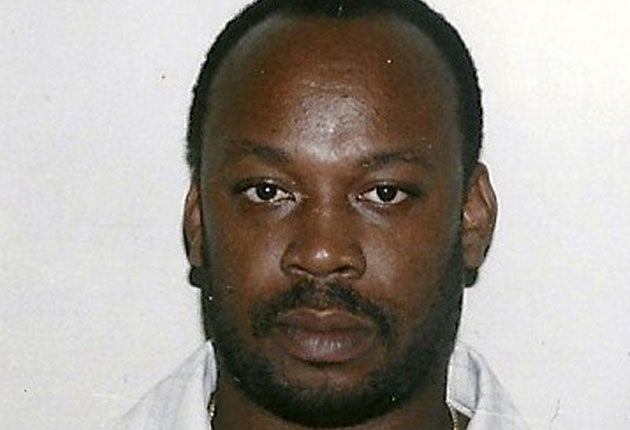Jamaican drug dealer Christopher Coke pleads guilty to racketeering

Your support helps us to tell the story
From reproductive rights to climate change to Big Tech, The Independent is on the ground when the story is developing. Whether it's investigating the financials of Elon Musk's pro-Trump PAC or producing our latest documentary, 'The A Word', which shines a light on the American women fighting for reproductive rights, we know how important it is to parse out the facts from the messaging.
At such a critical moment in US history, we need reporters on the ground. Your donation allows us to keep sending journalists to speak to both sides of the story.
The Independent is trusted by Americans across the entire political spectrum. And unlike many other quality news outlets, we choose not to lock Americans out of our reporting and analysis with paywalls. We believe quality journalism should be available to everyone, paid for by those who can afford it.
Your support makes all the difference.A Jamaican described by US authorities as among the world's most dangerous drug dealers admitted racketeering, assault and leading an international criminal organisation that delivered narcotics across the world for more than a decade.
Christopher Coke entered the plea in US District Court in Manhattan yesterday to charges that carry a potential penalty of 23 years in prison, substantially less than the possible life sentence he could have faced on the original charges. He will be sentenced on 8 December.
Coke said he was the leader and organiser of the Presidential Click drug organisation, which authorities said distributed drugs since 1994 worldwide, including to New York City, Miami and Kingston, Jamaica.
They said the Presidential Click controlled the Tivoli Gardens area, a neighbourhood in inner-city Kingston, where gunmen armed with US-made weapons acted at Coke's direction.
"I directed certain activities, not limited to distribution of cocaine and crack cocaine" in Jamaica and the US and the purchase and importation of firearms, he said.
"For nearly two decades, Christopher Coke led a ruthless criminal enterprise that used fear, force and intimidation to support its drug and arms trafficking 'businesses'," US Attorney Preet Bharara said in a statement.
"He moved drugs and guns between Jamaica and the United States with impunity. Today's plea is a welcome conclusion to this ugly chapter of criminal history."
Wearing a wig and travelling in a preacher's car, he was arrested by Jamaican authorities at a police checkpoint in June 2010 and extradited to the US.
A hunt for him in his West Kingston slum stronghold led to a confrontation that killed 73 civilians and three security officers over four days of fighting.
Coke was well known in Jamaica as a businessman who promoted shows. He also kept a high public profile in the ghettos west of Kingston, reportedly handing out cash and school supplies to needy children. He was also credited with helping to keep order by using his authority to punish thieves and other criminals in an area where the government has little presence.
His father was Lester Lloyd Coke, better known as Jim Brown, a leader of the Shower Posse during the 1980s cocaine wars. Authorities said Christopher Coke took over the organisation after his father died in a 1991 prison fire while awaiting extradition to the US.
Just outside the bullet-pocked slum of Tivoli Gardens, Coke's former headquarters in West Kingston, a resident expressed disbelief that the gritty neighbourhood's ex-strongman had pleaded guilty in New York.
"Can't believe he go out like that," a burly man nicknamed Buju said in Jamaican patois as he walked toward a corner where in May 2010 a group of masked men had erected barricades of wooden pallets and junked cars just before security forces launched their assault to capture Coke. "Thought he'd fight it to the end."
Mark Golding, justice spokesman for the opposition People's National Party, said Coke's defence team obviously had very limited options after a US federal judge ruled against suppressing wiretap evidence in recent weeks.
"I believe that must have been very compelling evidence against him," he said. "The US authorities had pursued this case against Coke for years, and of course the geopolitical aspects of this case were very sensitive."
AP
Subscribe to Independent Premium to bookmark this article
Want to bookmark your favourite articles and stories to read or reference later? Start your Independent Premium subscription today.
Join our commenting forum
Join thought-provoking conversations, follow other Independent readers and see their replies
Comments